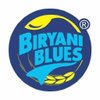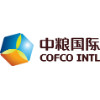i
Kalya Exports
2 Kalya Exports Jobs
Operations Manager.
Kalya Exports
posted 19d ago
Job Role Insights
Fixed timing
Key skills for the job
Job Description
Forecasting and Demand Planning Analyze market demand, customer orders, and historical sales data to forecast the production needs Working closely with sales and marketing teams to align production with customer requirements and export schedules. Work on Harvest Scheduling Develop detailed harvest schedules in coordination with farmers and suppliers. Optimal harvest time to ensure that the grapes are picked at peak quality for international shipment. Manage contingencies for any unforeseen issues such as weather conditions that may impact the harvest. Efficiently allocate resources (labor, equipment, and storage) to ensure smooth production. manpower required for harvesting, packaging, and logistics and ensuring that the necessary tools, packaging materials, and cold storage are available. oversee the packing process to ensure that it follows international standards, reducing any risk of spoilage or damage during transit. Ensure that grapes are ready for shipment within the planned timeframe by working closely with logistics partners and ensuring that transportation schedules are aligned with production and packing timelines. Establish and enforce strict quality control protocols from the vineyard to the packaging stage Monitoring the grapes for factors such as size, color, firmness, sweetness (Brix levels), and absence of pests or diseases. Preharvesting quality check Collaborate with agricultural experts and farmers to monitor the grapes' growing conditions (irrigation, pesticide usage, etc.) ensure that only high-quality grapes are selected for harvesting. Postharvesting quality check ensure that the grapes are properly handled to maintain their freshness ensuring that only grapes meeting the export quality criteria are packed for shipment. ensure proper temperature control during these stages to prevent premature ripening or decay. Ensure that grapes are packed according to international standards using materials that prevent bruising and spoilage during transit ensure that all shipments comply with these regulations, including obtaining necessary certifications and inspections before the grapes are exported. Annual and Seasonal Budget Preparation Work closely with the finance team to ensure alignment with the companys overall financial strategy. Estimate costs associated with each production cycle, including labor for harvesting, packaging materials, transportation, and cold storage Plan for capital expenditures (CapEx) related to operational needs such as new equipment, cold storage upgrades, or facility improvements Ensure that CapEx investments are justified with expected returns or improvements in operational efficiency. Monitor daily, weekly, and monthly expenditures across all operational activities. Compare actual spending against the budget to ensure operations are running cost-effectively. Any deviations should be addressed promptly, and necessary adjustments to the budget should be proposed where needed. Identify and implement cost-saving opportunities across the supply chain explore opportunities for reducing energy consumption in cold storage or streamlining labor costs during non-peak periods. Implement lean management principles to increase productivity and reduce unnecessary expenses. Work closely with suppliers and vendors to negotiate favorable terms, including volume discounts, early payment discounts, or extended payment terms. Ensure that all agreements are cost-effective and support the company's financial goals. Optimize transportation and shipping logistics by evaluating different shipping methods, consolidating shipments, and negotiating competitive rates with freight forwarders and logistics partners Reducing shipping costs will have a direct impact on the bottom line. Proactively research and identify potential suppliers for a range of needs, including agricultural inputs (fertilizers, pesticides, etc.) Ensure that vendors align with the company’s business goals and export standards. Evaluate vendors based on a range of criteria including product quality, cost competitiveness, reliability, adherence to deadlines, capacity to scale, and compliance with international agricultural and safety standards Consider the vendor’s reputation, experience in the grape industry, and their ability to support export requirements. manage the onboarding process, ensuring that they understand the company’s expectations in terms of quality, delivery timelines, compliance with phytosanitary standards, and the need for transparency Formalize agreements with clear terms related to pricing, lead times, quality requirements, and penalties for non-performance. Engage in detailed contract negotiations with suppliers, focusing on securing favorable terms for pricing, payment schedules, delivery timelines, and volume discounts Establish long-term partnerships with key suppliers by negotiating multi-year agreements. Continuously monitor the performance of suppliers to ensure they adhere to the agreed terms, including delivery schedules, quality standards, and pricing structures Any breaches should be addressed immediately to prevent operational disruptions. Work collaboratively to find solutions that prevent future occurrences without damaging the relationship Develop loyalty programs or incentives to reward suppliers who consistently perform well Monitor the flow of materials and goods between different points in the supply chain. Create a comprehensive map of the supply chain, from input sourcing (e.g., fertilizers, packaging materials) to the final delivery of grapes to international buyers. Develop and manage transportation schedules that align with harvest times, packaging, and market demand. Ensure that grapes are transported quickly and efficiently from farms to packing facilities and, from there, to cold storage or directly to export points. Develop strategies for maintaining optimal inventory levels of packaging materials, cold storage capacity, and harvested grapes Ensure that all storage facilities, including cold storage, are used efficiently Collaborate with the sales and marketing teams to analyze market demand and forecast future needs. Use historical data, market trends, and customer orders to develop production and shipping schedules that align with international demand cycles. Develop long-term operational strategies to support the company’s growth in international markets. Identify areas for improvement in processes and implement lean manufacturing techniques to enhance efficiency and reduce costs. Stay updated on industry trends, new technology, and best practices to keep the company competitive in the market. Identify operational risks such as supply chain disruptions, transportation delays, or quality issues and develop mitigation strategies. Ensure contingency plans are in place for unforeseen events like weather-related disruptions or international trade issues. Monitor global market conditions and regulatory changes that may impact export operations and adjust strategies accordingly. Implement sustainable practices across the supply chain, ensuring eco-friendly production and packaging where possible. Ensure compliance with ethical labor practices, environmental laws, and corporate social responsibility (CSR) standards. Ensure all the staff is well trained all all technical parts Identify training needs and arrange trainings for the team.
Employment Type: Full Time, Permanent
Read full job descriptionPrepare for Operations Manager roles with real interview advice
What people at Kalya Exports are saying
What Kalya Exports employees are saying about work life
Similar Jobs for you
Recently Viewed



























